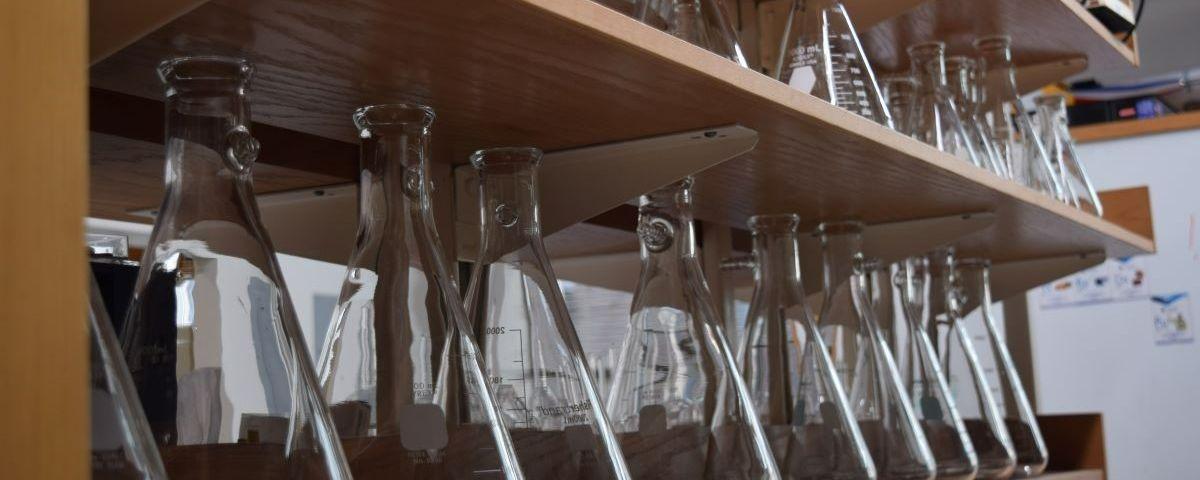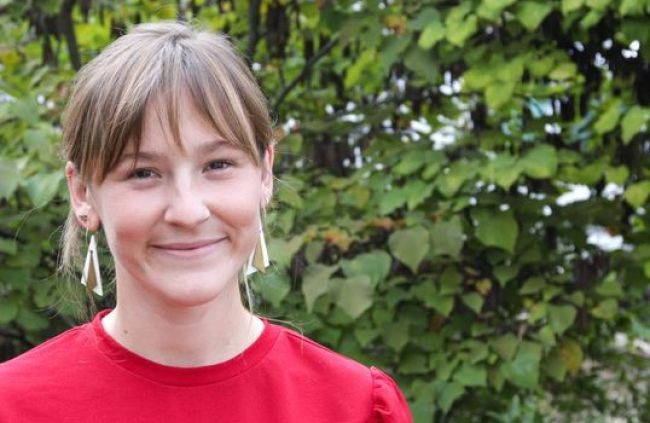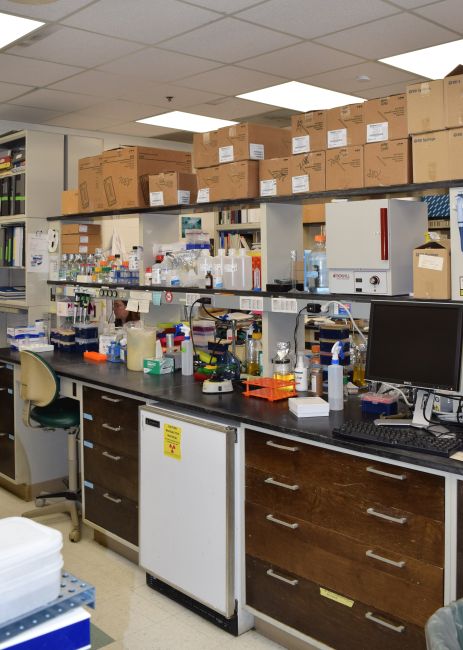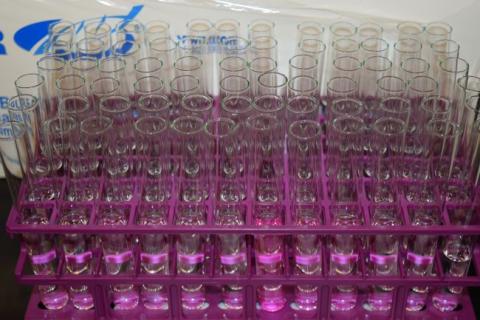
UVA's labs contribute to substantially in all areas of research nationally and globally. They also contribute significantly to UVA's carbon footprint. Our Green Labs Specialist walks through the many ways labs can reduce energy use and costs.
When it comes to taking steps towards leading a more sustainable life, it's worth considering where we invest our dollars. On a personal level, this can mean supporting more local businesses or brands that align with your values. However, this same principle can be transferred to a larger scale if we consider the comprehensive environmental impact of an institution.
Laboratories at UVA contribute significantly to the world of research and technological advancement, but they also have huge environmental footprints. Roughly half of UVA's landfill waste comes from the hospital, clinical and research spaces. In 2021 alone, UVA disposed of over 244,000 pounds of chemical waste. In order to support a greener future, it's imperative that labs explore how they can minimize their impact without compromising their research goals or safety of the researchers. Recycling and reuse remain important ways to reduce landfill waste, but eliminating material from waste streams at the beginning of the cycle is the most effective strategy for reducing the environmental impact of waste.
What resources are available to help me find more sustainable alternatives for lab supplies?
1. The ACT Label (Lab Supplies)
The Accountability, Consistency, and Transparency (ACT) Label is an incredible resource for anyone purchasing lab supplies. Products that receive the ACT label are thoroughly vetted by independent auditors and evaluated for their Environmental Impact Factor criteria. These criteria are comprehensive, accounting for everything from packaging to renewable energy use to energy consumption. ACT labeled products all receive an impact score that enables purchasers to compare the sustainability of various products with ease through use of the ACT Database.
2. The ENERGY STAR Label (Large Equipment)
The ENERGY STAR label is useful in making more sustainable decisions when purchasing large equipment. Labs take up 13% of UVA’s built environment, but use one third of the university's total energy - that’s because labs and their specialized equipment and ventilation needs are really energy intensive. The Energy Star label is for products that the U.S. Environmental Protection Agency has evaluated for their energy efficiency. Next time you need to buy a new piece of equipment for your lab, consider using their Product Finder tool.
3. Green Chemistry Resources (Chemicals)
There is a growing body of work around the topic of Green Chemistry that promotes the use of safer, more sustainable chemicals in labs. Reducing use of chemicals that might be more hazardous, difficult to procure, or are associated with human conflict or exploitation in their supply chain can have enormously positive ripple effects on our communities, both local and global. Explore using some of these tools next time to see if there are substitutions that your lab could make that support your research goals:
- The American Chemical Society (ACS) Solvent Selection Tool
- MilliporeSigma DOZN online tool
- My Green Lab provides even more resources
4. The EPEAT Registry (Electronics)
The EPEAT registry is an ecolabel managed by the Global Electronics Council that has third-party verification. Next time your lab needs new computers, displays, imaging equipment, servers or similar products, use the EPEAT registry to find more sustainable options for electronics.
What questions should I ask when I’m considering making purchases for my lab?
Researching the environmental footprint of individual products is tough, but here are some questions you can ask your labmates before purchasing new items.
Do we really need this? Have we explored reuse options or sharing? The most sustainable option is always to avoid buying new materials altogether. Consider connecting with other labs to share under-utilized items or equipment.
Can we bundle what we're buying to reduce transportation emissions? Instead of buying products as needed, consider reducing your orders to once a month to bundle everything together.
Have we considered more sustainable alternatives? Identify what some of the most utilized or resource-intensive items are in your lab and consider researching sustainable alternatives using the tools above. Assign researching different items to different lab members to make this effort more manageable.
Can we scale down our experiments? Less is always more, so engage with your lab during your next lab meetings to see if this might be an option.
Brainstorm together! Engage your entire lab to discuss what your lab might be able to do to support more sustainable supply chains. You might be surprised at the power of your collective innovation.
What questions can I ask vendors when I’m considering making purchases for my lab?
If you do have an opportunity to communicate directly with vendors and suppliers, it’s helpful to let them know that your lab has an interest in more sustainable products.
- “Our lab prioritizes sustainability. Can you tell me more about what your company is doing to provide more sustainable alternatives to our frequently purchased products?”
- “Is there an option for me to provide feedback about this item? I’d really like to get the ball rolling on identifying more sustainable options.”
- “Do you have options for this item that are not single use? We’d optimally like to identify closed-loop products.”
- “Can you tell me more about the life cycle of this product? Is it recyclable and/or manufactured with recycled materials?”
- “Can you speak to this item’s efficient use of energy/water/other resources?”
- “What are some ways that you as a vendor give back to the community and support environmental justice initiatives?”

Work with UVA Green Labs!
Thinking about the supply chain behind every item you use in the lab or in your daily life can get overwhelming really quickly, but the tricks and tools above can help you take things one step at a time. The UVA Green Labs program can also offer support, whether through our Certification program or through consultation with the Green Labs Specialist.
Reach out to Fiona Hogan at [email protected] to connect!


